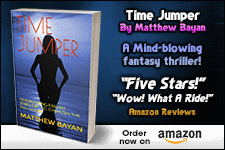The Magnificent 7 - Using the 7 basic elements of story - #writing #writingtips #novels
- by Matthew Bayan
- Aug 6, 2017
- 3 min read

7 basic story elements
1) Title
2) Setting -
3) Characters – Outside the bell curve
4) Conflict – Multiple characters and conflicts = subplots
5) Motive – What is the central question that the story must answer?
6) Plot- rising action, climax, falling action
7) Resolution
For the next 7 blogs, I'll write about these 7 crucial elements and how to use them.
Today, let's deal with Title.
"Don't judge a book by its title," we often hear, usually from writers with crummy titles. The horrifying reality is that titles really matter. They draw readers and agents to books.
I've personally witnessed several cases where an agent asked to read a manuscript solely because someone's elevator pitch offered an interesting title.
Several years ago, a Hollywood producer friend told me how the pitch session went for a movie titled, "Snakes On A Plane." It lasted one minute and ended with a Hollywood executive offering a greenlighted contract to the writer on the spot.
Why? The executive said he could see the whole movie from the title.
It's true that publishers will usually change a writer's working title, but that's more incentive to come up with an irresistible working title. One thing to realize is that before a manuscript gets published, it runs through a gauntlet of more than editors who love your literary chops. That manuscript also gets evaluated by people in sales and marketing. They're asking questions based on what is selling right now and what they estimate will trend in the next year.
The editor who is championing your book has to convince sales and marketing that your book is different than what is out there. But not too different. Though publishers say they want "new" ideas, in fact, they want something with a new spin on an idea that's already selling.
When urban fantasy was the rage, publishers wanted more urban fantasy, but with a twist, or more high concept. Throw in a lesbian vampire or bi-racial magicians and you were on your way to an advance.
Back to titles. Publishers want writers to submit various title ideas so that marketing has options. The internal forces are looking at how many words should fit on the book cover. If an author is new, the title is larger than the author's name. If the author is famous, then we may have to hunt for the book title because the author's name is gigantic. Look at recent releases from Lee Child for example.
As you're writing a book, a strong title can help you focus on what should happen in the story. So can a strong blurb. Both can be touchstones so that if you start to stray into the world of extraneous, but oh-so-lovely writing, you can look at your title and blurb and realize that extra subplot isn't really helping to lift the story.
Different genres have different flavors of titles. When Robert Ludlum was at his peak, the spy genre was afloat in clever word juxtapositions that frequently didn't make much sense. Start with The Bourne Identity as an example. An informal game began making the rounds among writers in which you chose a random word from each of two columns of random words to come up with a title. The Moscow Inversion. The London Game. The Parsifal Confession. You get the idea.
Remember, everyone who considers your book WILL judge it by its title, so act accordingly.
Next time: setting.










Comments